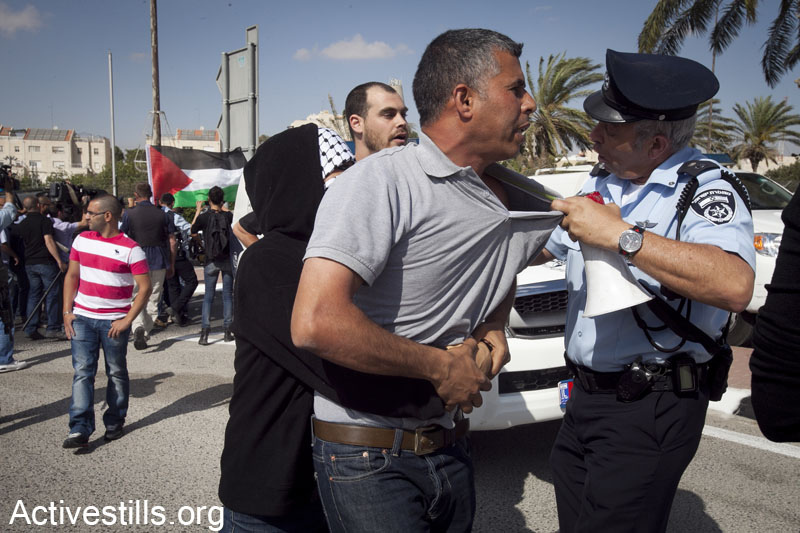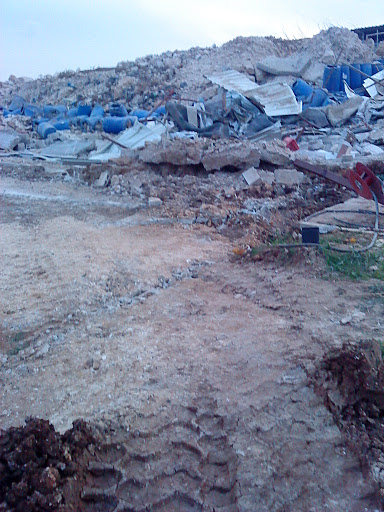Tag: Ma’ale Adumim settlement
-
Activists seal off settlement in solidarity with hunger strikers
13 May 2012 | Popular Struggle Coordination Committee Protesters blocked the entrance to the Ma’ale Adumim settlement, meters away from one of Israel’s main interrogation centers in the West Bank. Two protesters were arrested. 50 Palestinian, Israeli and international activists blocked the entrance of the Ma’ale Adumim settlement today, in support of the Palestinian prisoners’…
-
Khan Al-Ahmar: Forced expulsion of Bedouins from Area C
by Alistair George 13 December 2011 | International Solidarity Movement, West Bank “From the 1970’s until today, the Israelis used to demolish our tents and houses but not to deport us” says Abu Hamis, a member of the Jahalin Bedouin tribe . “We used to rebuild our places but the new policy which they are…
-
Anata falls victim to militarized, illegal settlement once again
by Jenna Bereld 26 October 2011 | International Solidarity Movement, West Bank When Mohammad woke up on Tuesday, he still did not know about the Israeli forces or the bulldozers that were on their way to uproot his trees and demolish his entire farm. But before the day was over, all of his property was erased and…


